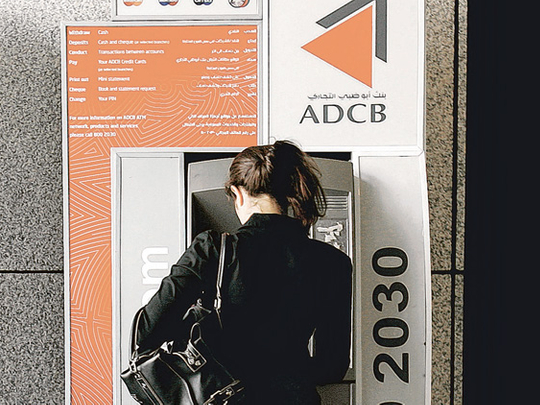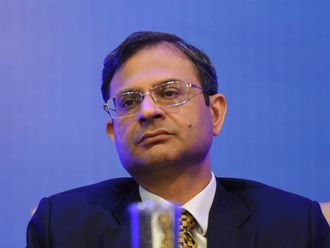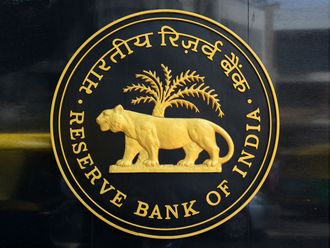
Abu Dhabi: While the shares of most banks in the United Arab Emirates have picked up in the second half of the year, in spite of ongoing worries over bad loans, one lender in particular has shone.
Even after a modest correction in November, shares in Abu Dhabi Commercial Bank have soared 43 per cent so far in the second half of 2010, compared with the 9 per cent gain of the Abu Dhabi Stock Exchange (ADX) in the same period.
The recent performance of ADCB's stock is largely a reward for its openness over the extent of its dud loan and investment portfolios, say analysts and fund managers. The lender's shares started rallying soon after the lender reported on August 1 a Dh531 million net loss in the second quarter, considerably below analysts' expectations, and revealed that it had a Dh6.6 billion total exposure to Dubai World, the emirate's most troubled conglomerate.
"They have come clean and been really honest about their exposures. That is what it comes down to and the markets are giving them credit for that," says Saleem Khokhar, a senior fund manager at National Bank of Abu Dhabi.
Bruising blows
ADCB continues to trade at about half its peak value, after a series of bruising financial blows during the financial crisis, but its shares have since recovered some of the ground and have significantly outperformed local banking rivals.
The ADX sub-index of banks and financial companies has gained 11 per cent so far in the second half of the year, while the Dubai Financial Market's banking sub-index has climbed about 14 per cent.
The Abu Dhabi-based bank's rally should be food for thought at many other lenders in the UAE, where transparency and disclosure are often far from perfect, and uncertainty regarding the extent of non-performing loans is deterring some investors.
Provisions for bad loans surged 41 per cent in the 12 months up to the end of August to Dh37.2 billion, according to the central bank, but the true level of bad debts could be higher.
Analysts say many banks have preferred to extend loans rather than book losses but this ties up valuable capital and just pushes potential problems into the future. Transparency on dud loans and investments is likely to improve when banks report their full-year earnings early in 2011. The UAE central bank also recently issued fresh guidelines that analysts say will standardise and improve accounting on NPLs.
However, that could lead to unpleasant surprises at banks that have continually pushed back their forecasts for when NPLs will peak.
"Banks would definitely do a lot better if they covered and were more transparent about the breakdown of the loan books and non-performing loans," says Raj Madha, a senior banking analyst at Rasmala.












